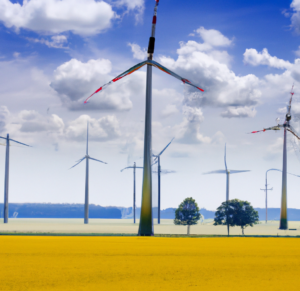Written by Aggeliki Marinou, an environmental engineer at Wattcrop.
The world is currently facing a number of pressing challenges, including climate change, environmental degradation, and the depletion of natural resources. Renewable energy is widely seen as a key part of the solution to these problems, and education has a crucial role to play in enabling the transition to a more sustainable energy future.
The contributions of education to renewable energy
One of the most important contributions of education to renewable energy is in the area of research and development. As more and more people become aware of the need for renewable energy, there is a growing demand for new and innovative solutions to the challenges of generating and storing clean energy. This has led to a surge in research and development in the field of renewable energy, and education plays a key role in producing the scientists and engineers who are driving this research forward.
Another important contribution of education to renewable energy is in the area of policy and regulation. As governments around the world seek to transition to a more sustainable energy system, they need to develop policies and regulations that support the growth of renewable energy while minimizing the negative impacts on the environment and society. This requires a deep understanding of the science and technology behind renewable energy and the social, economic, and political factors that influence energy systems. Education can provide policymakers with the knowledge and skills they need to develop effective policies and regulations that promote the growth of renewable energy.

Education also has a key role to play in promoting public awareness and understanding of renewable energy. As more and more people become aware of the need for clean energy, they are demanding more information about how renewable energy works and what they can do to support it. Education can help to provide this information, through initiatives such as public education campaigns, community outreach programs, and educational materials for schools and universities. By increasing public awareness and understanding of renewable energy, education can help to create a more supportive environment for the growth of renewable energy technologies and policies.
Finally, education can also play a key role in training the workforce needed to build, operate, and maintain renewable energy systems. As the demand for renewable energy continues to grow, there is a growing need for skilled workers who can design, install, and maintain these systems. Education can help to provide the training and skills needed to meet this demand, through programs such as vocational training, apprenticeships, and university degrees in fields such as renewable energy engineering and environmental science.
In conclusion, the contribution of education to renewable energy is crucial and multifaceted. Through research and development, policy and regulation, public awareness and understanding, and workforce training, education can help to drive the transition to a more sustainable energy future. By investing in education, governments, businesses, and individuals can play an active role in promoting the growth of renewable energy and creating a better future for us and for generations to come.

